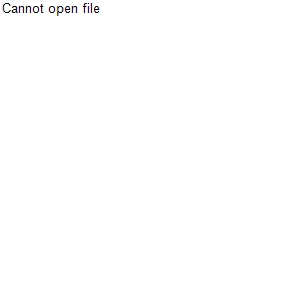| Authorised form of name | Huxley; Sir; Andrew Fielding (1917 - 2012); physiologist |
| Dates | 1917 - 2012 |
| Nationality | British |
| Place of birth | 16 Bracknell Gardens, Hampstead, London, England, United Kingdom |
| Date of birth | 22 November 1917 |
| Place of death | Grantchester, England, United Kingdom |
| Date of death | 30/05/2012 |
| Occupation | Physiologist |
| Research field | Biophysics |
| Physiology |
| Activity | Education:
Taught by a governess (1924-1925); University College School, Hampstead; Westminster School (1930); Trinity College, Cambridge (1935-1939)
Career:
Cambridge University Demonstrator (1946–50); Assistant Director of Research (1951–59) and Reader in Experimental Biophysics (1959–60) Physiological Laboratory, Cambridge; Director of Studies, Trinity College, Cambridge (1952–60); Jodrell Professor (1960–69); Royal Society Research Professor (1969–83); University College London. Master (1984–90), Fellow (1941–60); Trinity College, Cambridge Fellow (1990).
Medals and prizes:
Nobel Prize (Physiology or Medicine) 1963
Physiological Society Annual Review Prize Lecture 1973
Baly Medal 1975
Honours:
Kt 1974; OM 1983 |
| Membership category | Fellow |
| Date of election | 17/03/1955 |
| Age at election | 37 |
| Proposer | Henry Barcroft |
| John Carew Eccles |
| Francis John Worsley Roughton |
| David Whitteridge |
| Carl Frederick Abel Pantin |
| Ernest Basil Verney |
| James Gray |
| Archibald Vivian Hill |
| John Zachary Young |
| George Lindor Brown |
| Bernard Katz |
| Bryan Harold Cabot Matthews |
| William Albert Hugh Rushton |
| Alan Lloyd Hodgkin |
| RSActivity | Royal Society roles:
Council: 1960-1962, 1977-1979, 1980-1985; PRS 1980-1985
Medals and prizes:
Copley Medal 1973
Lectures:
Croonian 1967; Florey 1982; Blackett Memorial 1984 |
| Relationships | Parents: Leonard Huxley (1860–1933), classical scholar, biographer, and editor of the Cornhill Magazine, and Rosalind, née Bruce (1890–1994).
Paternal grandfather: Thomas Henry Huxley (FRS 1851)
Half-brother: Sir Julian Sorell Huxley (FRS 1938)
Spouse: (m. 5 July 1947) Richenda Gammell Pease (1925–2003).
Children: 6 |
| PublishedWorks | RCN 8728 |
| OtherInfo | Distinguished for his work on nervous conduction.
Developed new methods for studying electrical changes with internal electrodes and has made outstanding contributions to our knowledge of physical events underlying conduction of impulses - particularly in connexion with the role of electrolytes.
His experiments with myelinated nerve fibres provided convincing evidence for the salutatory theory of conduction and put it on a quantitative basis.
Developed a new type of interference microscope which gives much interesting information about the fine structure of skeletal muscle. |
| Related images | Discover a selection of related images in our picture library |
| Image | .jpg&type=RecordThumbnail)
|
| Source | References:
Sir Andrew Huxley, 'Living With Electrical Impulses', review of Alan Hodgkin, Chance and Design. Reminiscences of Science in Peace and War in NR 1993 vol 47 pp 133-139, plate
Sir Andrew Huxley, 'Grandfather and Grandson' in NR 1983-84 vol 38 pp 147-151
Mariana Cook 'Faces of Science' 2005 pp76-77
DNB |
| Virtual International Authority File | http://viaf.org/viaf/101601990 |
| Code | NA2769 |
| RefNo | Title | Date |
| IM/002339 | Huxley, Sir Andrew Fielding | nd |
| IM/002334 | Huxley, Sir Andrew Fielding | nd |
| GLB/65/47/175 | Brown to Andrew Huxley, University College London Department of Physiology | 19 October 1961 |
| GLB/65/9/9 | A F Huxley, Department of Physiology, University College London to Brown | 7 December 1965 |
| GLB/65/9/10 | Brown to A F Huxley, Department of Physiology, University College London | 14 December 1965 |
| GLB/65/47/174 | Brown to Andrew Huxley, University College London Department of Physiology | 11 October 1960 |
| GLB/65/47/177 | Brown to Andrew Huxley, University College London Department of Physiology | 10 June 1966 |
| GLB/65/47/178 | Brown to Andrew Huxley, University College London Department of Physiology | 21 July 1967 |
| GLB/65/47/173 | Andrew Huxley, University College London Department of Physiology to Brown | 6 October 1960 |
| GLB/65/47/176 | Andrew Huxley, University College London Department of Physiology to Brown | 24 October 1963 |
| GLB/65/61/13 | Brown to A F Huxley, Department of Physiology, University College London | 3 October 1967 |
| GLB/65/9/8 | Brown to A F Huxley, Department of Physiology, University College London | 3 December 1965 |
| HWT/24/2/2 | Correspondence and papers regarding Royal Society policy subsequent to the Russian invasion of Czechoslovakia | August 1968 - December 1969 |
| IM/GA/WRS/9191 | Huxley, Sir Andrew Fielding | nd |
| IM/002338 | Huxley, Sir Andrew Fielding | 27 January 1981 |
| IM/002335 | Huxley, Sir Andrew Fielding | nd |
| EC/1955/13 | Huxley, Sir Andrew Fielding: certificate of election to the Royal Society | |
| IM/GA/SGA/11560 | Huxley, Sir Andrew Fielding | 1985 |
| IM/002340 | Huxley, Sir Andrew Fielding | 28 September 1985 |
| JV/11/7/112 | Letter from Sir Andrew Huxley, PRS to Sir John Vane | 31 December 1983 |
| IM/002337 | Huxley, Sir Andrew Fielding | November 1980 |
| IM/002336 | Huxley, Sir Andrew Fielding | 15 September1975 |
| IM/GA/JGA/9671 | Officers, 1983 | 30 September 1983 |
| P/0179 | Portrait of Andrew Fielding Huxley | 1985 |
| DRW/2/2/27 | Scientific correspondence between Douglas Robert Wilkie and Andrew Fielding Huxley | 1972-1976 |
| IM/007600 | Officers, 1985 | 1985 |
| DRW/2/2/17 | General scientific and professional correspondence file of Douglas Robert Wilkie for the years 1983-1989 | 1983-1989 |
| IM/GA/SGA/11571 | Officers, 1985 | 30 November 1985 |